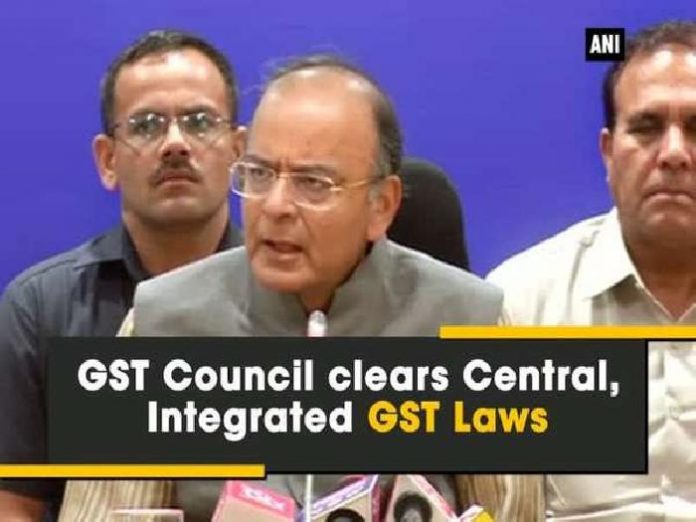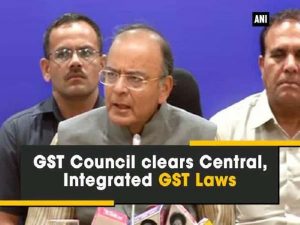The Goods and Services Tax (GST) Council headed by Finance Minister Arun Jaitley unanimously cleared the crucial Central GST (CGST) and Integrated GST (IGST) draft bills on March 4, 2017 during its 11th meeting at Vigyan Bhavan.
- The state had recommended as many as 26 changes regarding CGST and IGST, all of which were accepted by the Centre.
- Under the IGST bill which is related to taxation of inter-state transfer of goods, the legislation has been made for cross empowerment of state and central officers.
- Both Centre and states have agreed to provide a composition scheme for small businesses. Now the small businesses with an annual turnover of up to Rs 50 lakh will pay 5 percent tax (to be shared equally between the Centre and states).
- The government is keen to roll out the new regime GST from July 1 and for this it plans to hold at least 12 GST Council meetings in the comings weeks to discuss and get it cleared.
Key Facts
The draft compensation bill was approved in the Council meeting on February 18. According to this bill, the Centre will have to fully compensate states for any revenue loss for five years after migrating to the new tax system.
- The State GST (S-GST) and Union Territory GST (UT-GST) draft bills will be taken up for discussion and approval at the Council’s 12th meeting on March 16.
- Once all the draft bills are cleared in the council meet, the government will introduce the model GST law, which provides a common draft of CGST law, SGST law, IGST law, UTGST law and Compensation Law, in Parliament in the second half of the Budget Session beginning March 9, 2017.
- After the approval from the Parliament, the SGST law will have to be cleared by respective state legislatures also.

- Besides, every state government will have to pass their own state-GST and classify tax rates for each item that is sold in the market before GST can be rolled out.
- The council will fix the rates of taxes for different goods and services by fitting them into the four approved slabs of 5, 12, 18 and 28 percent.
About Goods and Services Tax
The Goods and Services Tax Bill or GST Bill, officially known as The Constitution (One Hundred and Twenty-Second Amendment) Bill, 2014 is a tax system which will replace all the indirect taxes in the country like Service Tax, Excise Duty, VAT, Sales Tax etc. and make India One Nation One Tax Country.
- Under it, the Central GST (C-GST) will be levied by the Centre, State GST (S-GST) by states and Integrated GST (I-GST) on inter-state supply of goods and services to be shared by state and centre.
GST COMMITTEE
GST Committee is joint forum of the Centre and the States under the chairmanship of Union Finance Minister to make recommendations on important issues related to GST.
The composition of the GST Council includes:
- The Union Finance Minister (as Chairman)
- The Union Minister of State in charge of Revenue or Finance and
- The Minister in charge of Finance or Taxation or any other Minister, nominated by each state government.






